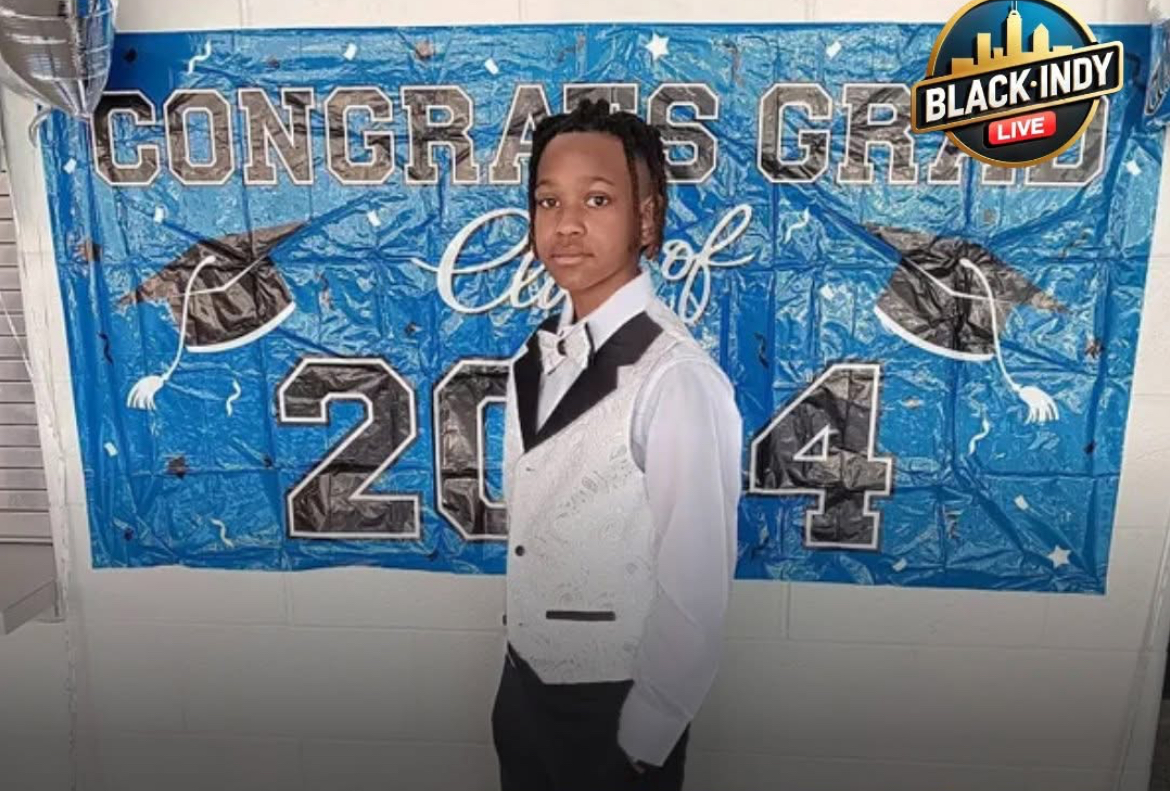A tragic shooting that claimed the lives of 12-year-old Israel “Izzy” Offett and his 24-year-old brother, Wayland Coe, has shaken the Indianapolis community and sparked difficult conversations about violence, responsibility, and the choices that led to that fatal night.
Now, newly released court documents are shedding light on the motive behind the double homicide, revealing a story of jealousy, misunderstanding, and senseless loss.
According to police, 19-year-old Anthony Bean confessed to investigators that he opened fire on Coe and Offett because he saw Coe speaking to Bean’s girlfriend outside a taco truck near 4 a.m. on July 12, 2025. The shooting occurred just hours after all parties had reportedly met earlier in the evening at Club Vibez, a popular nightlife spot in the area.
Per court records, Wayland Coe had gone to meet a group of women — one of whom was in a relationship with Bean — at the taco truck. Witnesses say Coe made a seemingly harmless comment, asking the women, “Are y’all ready to go?” The remark wasn’t considered inappropriate or confrontational by anyone present, yet Bean took it personally, interpreting the interaction as disrespectful or threatening.
Moments later, Bean allegedly pulled up next to the SUV where Coe and his younger brother Izzy were sitting and opened fire. Both brothers were hit. Coe was rushed to Eskenazi Hospital, where he died of his injuries. Izzy, the 12-year-old, was taken to Riley Hospital for Children, but tragically did not survive.
During interrogation, Bean reportedly admitted that both victims were “innocents” and that he knew what he had done was “wrong.” Despite his acknowledgment, his actions left a devastating hole in a family and sparked a citywide conversation about youth, safety, and accountability.
A Community in Grief — and Debate
This tragedy has ignited a powerful and painful debate in Indianapolis, particularly surrounding the question: What was a 12-year-old doing out at 4 a.m.?
Some members of the community have defended the circumstances, emphasizing that Izzy was with his older brother, a man who appeared to be taking on a caretaking role. Many say that siblings often rely on each other for companionship, especially in tight-knit families where responsibilities are shared.
But others are grappling with the harsh reality that no matter how loving or well-intentioned Coe may have been, a 12-year-old child was exposed to a dangerous environment that ultimately cost him his life. Questions linger: Was it safe to bring a young boy to a nightlife setting? Should more precautions have been taken? Would Izzy still be alive if different decisions had been made?
These are not questions with easy answers.
What makes this tragedy even more heartbreaking is the senselessness of the motive. According to the very words of the accused, the incident stemmed from a moment of perceived disrespect that was never intended. Bean acted out of jealousy and emotion, and now two lives are gone, countless others are shattered, and a community is left mourning what should never have happened.
A Devastating Loss
Israel “Izzy” Offett is being remembered as a bright, joyful, and kind-hearted boy. He loved video games, family cookouts, and had dreams of playing professional football. Wayland Coe, described by friends as protective and charismatic, was seen by many as a big brother not only to Izzy but to others in the neighborhood. His intentions that night may have been misguided, but few doubt that he loved his younger brother deeply.
Now, their family is facing an unimaginable loss, and the city of Indianapolis must confront not only its gun violence crisis but also the complex intersections of youth, nightlife, peer influence, and personal responsibility.
What Do You Think?
As more details emerge, we’re left asking difficult questions:
•Does knowing more about Coe’s intentions change how you feel about Izzy being out that night?
•Was the presence of an adult brother enough to make it safe?
•Or does this new information only deepen the sense that Izzy never should have been there?
There’s no one-size-fits-all answer. But what’s clear is this: Two lives were lost over a misunderstanding, and a grieving family now must navigate the rest of their lives without them.
This tragedy serves as both a cautionary tale and a call for compassion—a reminder that the choices we make, no matter how small or emotionally driven, can carry irreversible consequences. It also underscores the desperate need for conflict resolution, community support, and youth protection in a city still healing.
We will continue to follow this case as it moves through the legal system. In the meantime, we remember Izzy and Wayland, and we hold their loved ones in our hearts.

Leave a Reply